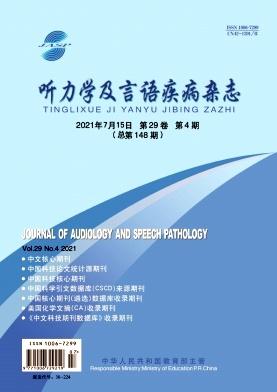Speech Preparation and Articulation Time in Bilinguals and Men
引用次数: 6
Abstract
The current study investigated the relationship between word utterance preparation time and word articulation duration in young adults. In a stratified sample, 40 monolinguals’ (20 males and 20 females) and 40 bilinguals’ (20 males and 20 females) word pronunciation of English words vs. derived, scrambled non-words as well as the hesitation before speaking were measured in milliseconds. Positive effects of bilingualism were found as these speakers showed significantly faster articulation of new non-words than their monolingual counterparts. Sex differences showed that independently of the number of languages men were able to speak, they needed more speech preparation time than women, but no difference in the duration of their word articulation time was observed. Preparation and articulation were correlated in monolingual speakers, but not in bilingual speakers. This suggests that the phonological loop was circumvented in bilingual speakers. We presume that bilinguals map multi-lingual phonology and were thus not saving time during preparation for articulation, but they appeared to have benefited from knowing multiple fine motor mouth movements of various languages during articulation itself. Future research may benefit from controlling the psychological factor of confidence when preparing to speak.双语者和男性的演讲准备和发音时间
本研究探讨了青年成人的词语准备时间与词语发音持续时间的关系。在一个分层样本中,40名单语者(20名男性和20名女性)和40名双语者(20名男性和20名女性)对英语单词的发音、衍生词、非单词的混乱以及说话前的犹豫进行了以毫秒为单位的测量。研究发现,双语的积极影响是,这些说话者比单语的说话者在新非单词的发音上明显更快。性别差异表明,与男性会说的语言数量无关,他们比女性需要更多的演讲准备时间,但在单词发音时间上没有观察到差异。准备和发音在单语者中相关,而在双语者中不相关。这表明双语者绕过了语音循环。我们假设双语者掌握了多种语言的音韵,因此在准备发音时并没有节省时间,但他们在发音过程中似乎从了解各种语言的多种精细嘴部运动中受益。未来的研究可能会受益于控制在准备发言时的自信心理因素。
本文章由计算机程序翻译,如有差异,请以英文原文为准。
求助全文
约1分钟内获得全文
求助全文

 求助内容:
求助内容: 应助结果提醒方式:
应助结果提醒方式:


